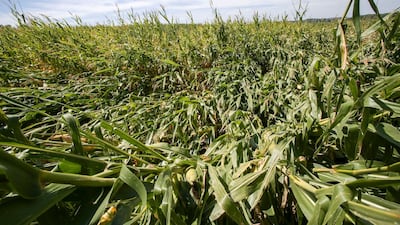Smartkas, an agricultural technology company in the Netherlands, and the Hamad Bin Khalifa Department of Projects have formed a joint venture to develop hi-tech farms in the UAE.
As part of the deal, Smartkas will transform the desert sand into “smart greenhouses” using the latest technology such as artificial intelligence, cloud computing, drones and robotics to help boost food security in the UAE and across the GCC, the two companies said on Sunday.
“Food security is among the top priorities for the Emirates, especially after the devastating impact of Covid-19. Our joint venture with Smartkas will bring about the future of agriculture in the UAE,” Sheikh Hamad Bin Khalifa, chairman of HBK DOP, said.
Smartkas, which recently gained recognition at a European start-up contest for its innovative agricultural solutions, is planning to build a research and development centre in Toulouse, France, to carry out research on artificial pollination, full automated harvests and new generation farming based on AI.
“The mission of Smartkas is to make access to food and water a basic human right. This is why we partner up with the market leaders instead of competing with them; we focus on sharing and scaling together,” said David Meszaros, chief executive and founder of Smartkas.
HBK DOP was founded by Sheikh Hamad to handle project investments and enter into joint venture partnerships that focus on sustainability and job creation.
The Dubai company intends to develop projects in the Middle East, Africa, India, Russia, Central Asia, Hong Kong and Mexico.
Food security was priority for many Gulf nations even before the onset of the coronavirus pandemic, which disrupted global supply chains.
Gulf countries import as much as 90 per cent of the food they consume, according to think tank Chatham House.
Earlier this year, Pure Harvest Smart Farms, an Abu Dhabi agricultural technology company, secured a multistage investment commitment of $100 million from Kuwait's Wafra International Investment Company to fund hiring and a massive expansion of its sustainable greenhouses in Kuwait and across the wider region, including the UAE and Saudi Arabia.
The UAE is also focused on developing the sector.
Last year, Abu Dhabi launched a Dh1 billion ($272m) programme to support the establishment of agri-tech companies in the emirate, as part of the Ghadan 21 stimulus package.
The programme involves both cash and non-cash incentives being made available to make it easier for both local and global agri-tech companies to expand.


